FIE 2021
The Food Ingredients Europe (FIE) 2021 fair was held in Frankfurt from November 30 to December 2, 2021. This fair is a point of reference for the food industry in Europe, and everyone who attended was delighted at being able to be there for real and take part. It was an opportunity to see the current market trends for ingredients in the food and health industry.
Find out about the main trends that came to light and are driving the food market.
Consumers increasingly motivated by the environment and the planet.
Sustainable development – as regards both production and consumption – is at the heart of consumer concerns around the world. The health of the planet has in fact become the number one concern for consumers, ahead of the health of the population.[1]
Consumers change their buying habits when they find manufacturing practices that match their criteria
Consumers change their buying habits when they find manufacturing practices that match their criteria. And since the COVID 19 epidemic, they expect more commitment and higher ethics from manufacturers.
Consumers are looking for the utmost transparency on the part of manufacturers when it comes to the origins of their products, their impact on the environment and the repercussions on health. This is why companies have to have pertinent and effective communication to build up and maintain the trust of the consumer.
Finally, this rise in environmental awareness of the planet is also changing the habits of consumers, who are increasingly moving towards plant-based alternatives. The next challenge will be to offer quality alternatives, which for the moment lack flavor or are highly processed.
Products with a “clean” composition
With consciously improving consumption attitudes, consumers are increasingly going to turn towards natural products composed of known and easily identifiable ingredients. Furthermore, the consumption of products containing unwanted substances has even now become limited or been stopped and for future consumers this will be a priority. For example, 71 % of French consumers feel that the potential presence of micro-plastics in bottles is worrying [2]. In the UK, 29 % of consumers buy ethical food so as to avoid consuming unwanted ingredients such as pesticides and antibiotics².
Proteins continue to attract
As the state of the whey protein market demonstrates at the end of 2021, demand by consumers for protein products remains high. In response to the Covid epidemic and the desire it has generated in consumers to take care of themselves and improve immunity, manufacturers today are offering a lot of protein product concepts. Every possible format is on offer, including beverages, food bars, creams and powders, thus targeting every part of the population in a wide range of consumption situations. In fact, this trend is driven both by the younger generation who want to be healthy and by sports people, and by the older generation who realize that nutrition plays a crucial role in healthy aging.
All these trends are in fact related: the consumption of healthier and more ethical products equates to improved health, whether it be for Humans or for the Planet.
[1] Innova Life style & Attitude Survey 2020 and 2021
[2] KuRun Data/ Mintel ; Kantar Profiles/ Mintel















